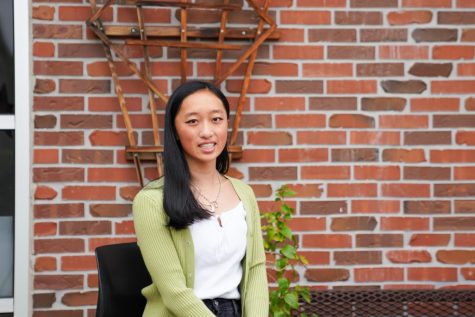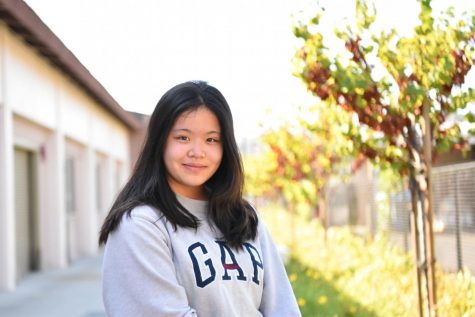Is ‘Girls Planet 999’ rigged or reality?
Unpacking controversies surrounding Korean idol survival shows
September 18, 2021
Along with the media that is constantly produced by hundreds of K-pop groups and bands, a huge interest of many K-pop fans internationally is the training process which a majority of idols must go through to debut and make their attempt at success in the industry. While details of the full K-pop trainee experience have not been revealed to the public, the taxing and often unfruitful process is a common topic of discussion amongst many Korean celebrities and fans.
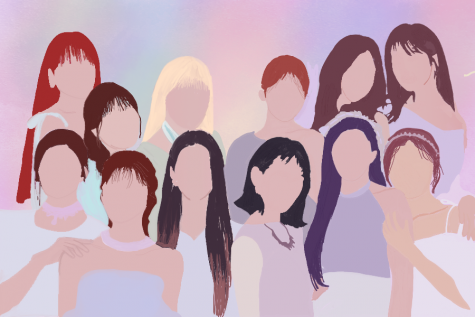
Part of what assists fans in understanding the lives of trainees are audition programs, also known as survival shows. These shows often follow a system where a large group of trainees spend several months competing in individual and group performances and evaluations. Junior Julia Lu states that she finds these shows as a good form of entertainment, but there are inherent problems with them as well.
“I personally think the shows are a really good form of entertainment if you’re bored,” Lu said. “But the shows can be highly toxic [and] they can influence how you view yourself [as a person] greatly.”

One of the most well-known series of audition programs, “Produce 101,” began in 2016, where 101 female trainees were selected from thousands of applicants to go through a multitude of unit projects. Trainees were grouped based on performance aspects such as dance or vocal abilities. Both Korean and international viewers of the show were able to vote and rank the participants through these performances, subsequently leading to the debut of the temporary girl group IOI, made up of the top 11 finalists. The show is currently on its fifth season: “Girls Planet 999”, which is the first show to bring together girls from three countries: Korea, Japan and China, and has debuted a total of four groups.
Before the start of “Girls Planet 999,” two of the groups (X1 and I*ZONE) formed by the “Produce” series disbanded prematurely after it was confirmed in Jan. of 2020 that the channel producing the series, Mnet, participated in voting manipulation and rigging throughout all four completed seasons.
https://open.spotify.com/playlist/7hoC2gWlMfc2rE20ASbiic?si=f4f70b1ae12a4c28
Mnet is a South Korean television and music channel geared towards releasing entertainment for youth and is one of the most well-known channels in Korea. The corruption of such a major company and the disbandment of X1 and I*ZONE, both well-loved groups, was a huge shock to fans and reached K-pop fans of the MVHS community as well. After junior Sivani Gangaram learned about these controversies, she developed strong opinions about K-pop survival shows.
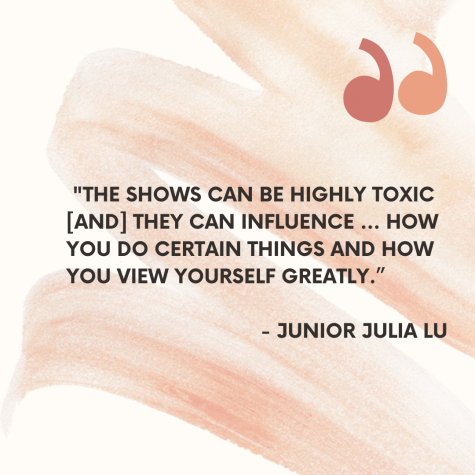
“What I don’t like is the fact that [the shows are] all pre-planned,” Gangaram said. “[Especially how] these company executives already [determine] the [final] groups beforehand.” Additionally, although sophomore Manasvini Pujari enjoyed following the journey of survival show contestants, she admitted that “they’re a little cruel because [of] how much competition there is [among contestants] … [and] how strict the [beauty] standards are.”
Because of the controversy surrounding K-pop survival shows, Gangaram was led to the conclusion that they should be discontinued completely. “Instead of forcing … young teenagers to sell themselves in front of [a] camera and do all these crazy things for clout, [entertainment companies should] stop doing survival shows,” Gangaram said.
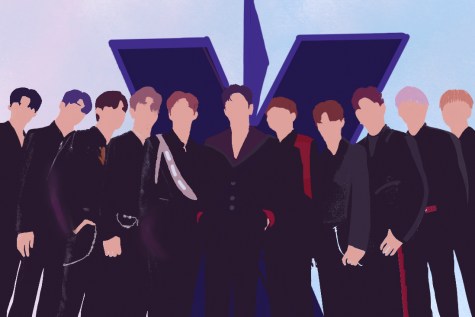
The problematic components of K-pop survival shows can be seen as a direct reflection of the K-pop industry’s superficiality and toxicity as a whole. The trainees in “Girls Planet 999” who fit Asian beauty standards the best and are deemed the “prettiest” often have the most screen time. It’s a common theme to see idols develop severely unhealthy habits as a result of working in the industry, but with so much attention surrounding these individuals, Lu mentioned that fans are also negatively influenced by these toxic standards.
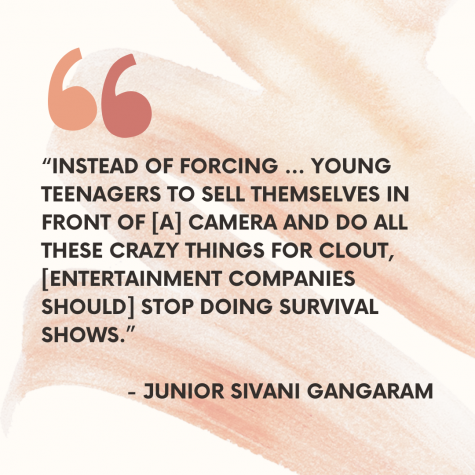
“I feel like as a fan of Kpop, I’ve definitely been personally affected by … how they view beauty, the standard[s] that the public has for them and how idols have to appear perfect no matter what,” Lu said. “A lot of people including myself have seen how the standard has affected idols and … sometimes we try to apply those standards upon ourselves and we realize like, ‘Oh wow, I don’t meet that standard either.’ That [can make] me feel really bad about myself.”
The multitude of controversies surrounding K-pop survival shows has caused many to question the ethicality of releasing new seasons. Although these shows provide trainees the opportunity to gain publicity within the cutthroat K-pop industry, ultimately they should be discontinued because they are harmful to both participants and viewers alike.


